Memorize these British etiquette rules to look perfectly proper in every situation—from social gatherings to business meetings
12 British Etiquette Rules Americans Need to Adopt

Improve your manners with these British etiquette tips
You might take offense when people from other countries call Americans “rude.” But even if you think your manners are impeccable and you know the polite thing to do in most situations, you have to admit that the Brits take etiquette to a whole other level. As someone who moved to London six years ago from Austria, where it’s a lot less formal, I know this all too well. But while I was pretty intimidated by the intricacies of British etiquette at first, I soon realized that it wasn’t too hard to keep up—and that it could make a big difference in my daily interactions.
Yes, England is a country where centuries-old traditions are still highly regarded—and practiced—in everyday life. The monarchy also keeps them front and center for everyone to see. But as formal as U.K. etiquette may seem, it really boils down to being polite, says Laura Windsor, author of Modern British Manners and an expert in royal etiquette.
Want to up your game in the manners department? I spoke with Windsor and internationally recognized manners expert Sharon Schweitzer, founder of Access to Culture, to help you learn a few easy tips from the land where etiquette rules, well, rule. Read on for a lesson in proper British manners that you can easily incorporate into your life.
Get Reader’s Digest’s Read Up newsletter for more etiquette, humor, cleaning, travel, tech and fun facts all week long.
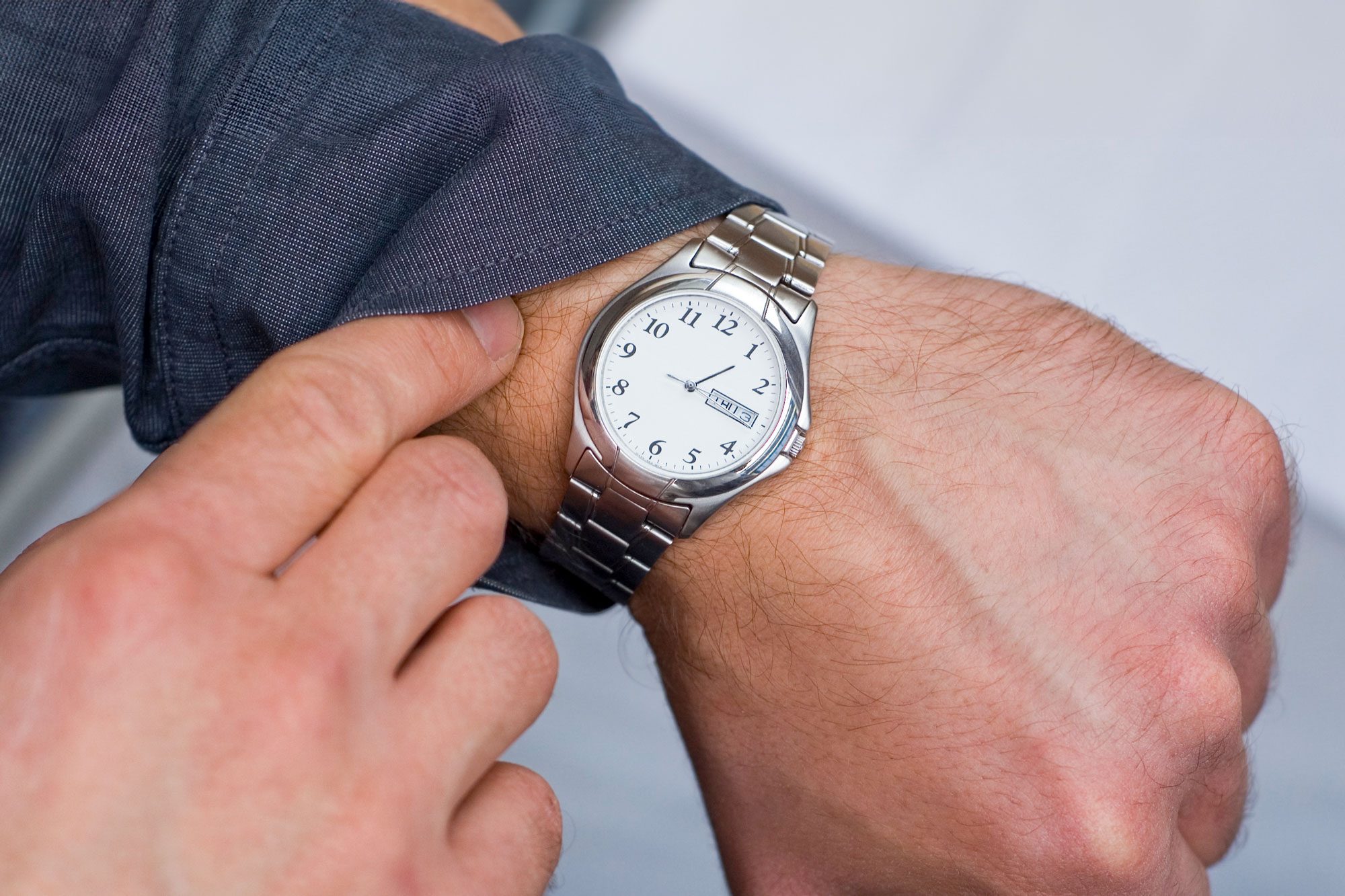
Always arrive on time
Whether you’re due at a business meeting or a dinner party, always—always!—be on time. “Fashionably late is fashionably rude,” says Windsor. “Coming 10 to 15 minutes late is acceptable, but it should never be more. The hosts have gone to great lengths to make a pleasurable evening for you, so don’t leave them waiting.” Obviously, sometimes things happen. You might be stuck in traffic, or there could be disruptions on your train. In that case, call as soon as possible, and be honest about how late you will be. “That way, the host can decide if they want to wait with serving the food or not,” Windsor explains. “And don’t pretend it’s just five minutes when you’re probably going to be half an hour.”
Also make sure you never arrive too early, Windsor adds. After all, you don’t want to disturb your hosts while they’re doing last-minute preparations or putting their makeup on.

Say “please,” “thank you” and “sorry”
Brits are generous with how many times they say “please” and “thank you,” so don’t get lazy with basic etiquette. Another polite habit to remember: It’s always “may I have,” not “can I have.” It may seem like a tiny thing, but it makes a big impact. “You ‘can’ do anything in the world, but using ‘may’ means you’re asking for permission,” explains Windsor. So let’s say you’re at a restaurant. Don’t say, “I’ll take a burger.” Instead, show the staff some respect and ask, “May I please have a burger?”
When in the U.K., you’ll also quickly notice that Brits love to apologize. “If someone bumps into me, I will say ‘sorry,’ and he or she will say it too,” says Windsor. “It’s not that I’m really sorry—it’s just the response that we learned from when we were little.” The same applies when you go to the theater and find someone sitting in your seat. Don’t just tell them to get up or wave your ticket with the seat number at them. “An English person would say, ‘I’m so sorry, but I think you’re in my seat.’ The ‘sorry’ is a softener that is used in all sorts of situations. Otherwise, it all sounds a bit too hard,” Windsor explains.

Keep conversations light, and don’t get too personal
Mastering the art of small talk is the epitome of British etiquette. Windsor sums up the main rules: “Keep the conversation light and general. Don’t ask questions that are too personal, such as if somebody is married or has kids. If you’re talking to someone who’s been secretly waiting for a proposal from their boyfriend for years or just had a miscarriage, this won’t go down well. If you notice someone has an accent, never ask, ‘Where are you from?’ Instead, you could say, ‘Where is home for you?’ In that case, it’s up to the person how much they want to reveal.”
Not sure what to chat about? “The weather always works as an icebreaker in the U.K.,” Windsor says. “You could also talk about the event you’re at or ask how the person you’re talking to knows the host.” Topics to avoid, apart from personal questions, include politics and anything controversial. When in doubt, just think of the British royals—all experts in light-hearted small talk—and try to copy their style.

When dining, keep your fork in the same hand
When it comes to cutting food, there’s a big difference between American and British table manners. Yes, both Americans and Brits will hold a knife with their dominant hand and a fork in the other while cutting food on a plate. What comes after, though, is where they differ. Americans typically put down the knife, then pick up their fork with their stronger hand to deliver that bite to their mouths. Brits, on the other hand (no pun intended), keep the fork in the same hand when taking a bite. “It is efficient to dine and not have to do what I call the ‘zigzag’ style,” says Schweitzer. “When dining British-style, you keep the knife and fork in your hands and don’t put them down unless you get something to drink or pick up a napkin to blot.”
However, it’s not all about efficiency, according to Windsor. “When we are at the table in the U.K., we want to give the least distraction,” she explains, “and we want to not make noises, which includes clattering the cutlery on the plate.”
Another thing to remember? “When using a fork, the tines are always down,” Windsor says. “You never turn the fork to scoop food on.”
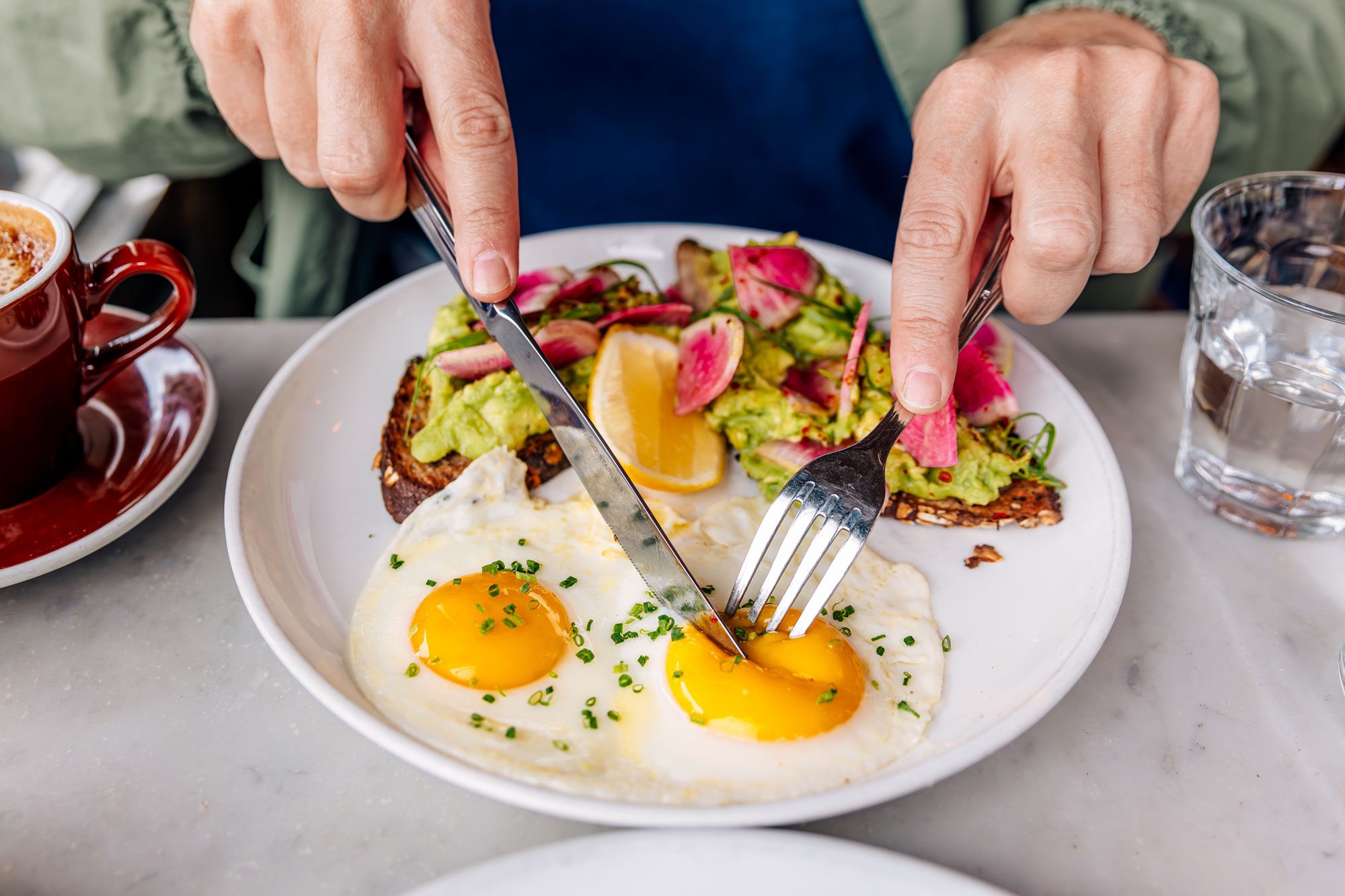
Only cut—and eat—one bite at a time
To avoid the aforementioned zigzag eating style, Americans sometimes cut up several pieces of meat (or veggies) before actually eating any. Then, once the fork is in the dominant hand, it’s easy to take a few bites without switching back. But cutting up multiple bites goes against British etiquette. “That’s for children, when you’re 3 and 4 years old and your parents help cut your food,” Schweitzer says.
Windsor adds that it’s all about “looking elegant” when dining in Britain, which is why you don’t only cut one bite at a time—you also eat one bite at a time. “We don’t come to the table to stuff our faces. We come to eat and have conversations with people,” she explains. “We like our small bites. Apart from the fact that they’re easy to swallow and give us time to talk in between, they also prevent choking, especially for kids. And it’s good for digestion too.”
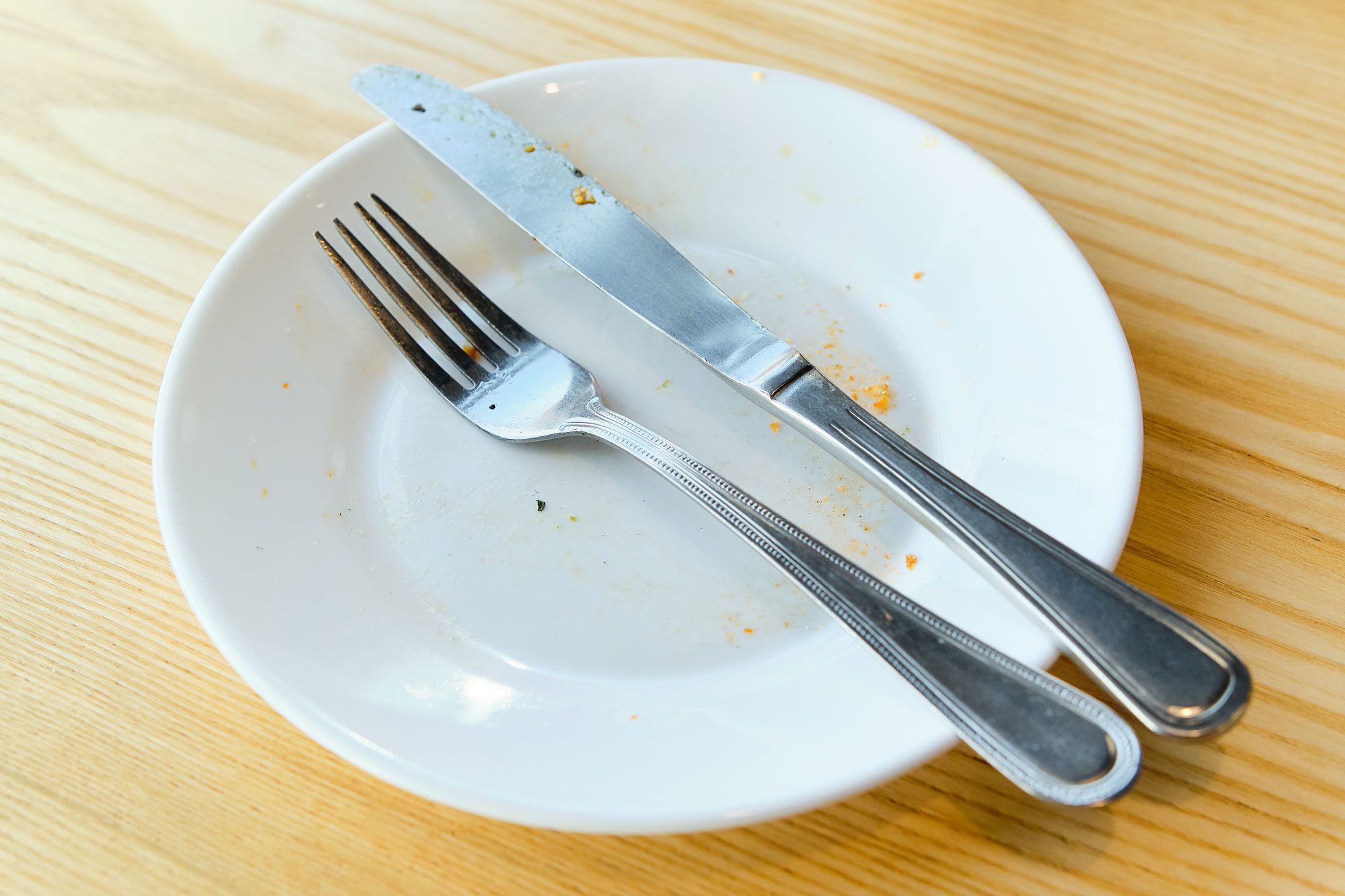
Lay down your silverware nicely
All good things eventually come to an end, including British dinner parties. So where do you put your silverware when you’re done eating? In the United States, proper etiquette is to leave it diagonally on your plate, like the 10:20 position on a clock, says Schweitzer. Brits, however, finish in the 6:30 position, with the fork on the left and the knife on the right. “But there’s nothing wrong with doing it another way—it’s just a cultural difference,” Windsor says.
The most important thing is to make sure you set your silverware in a spot that looks “done.” That way, your host or a server at a restaurant and your fellow diners can tell you’re finished.
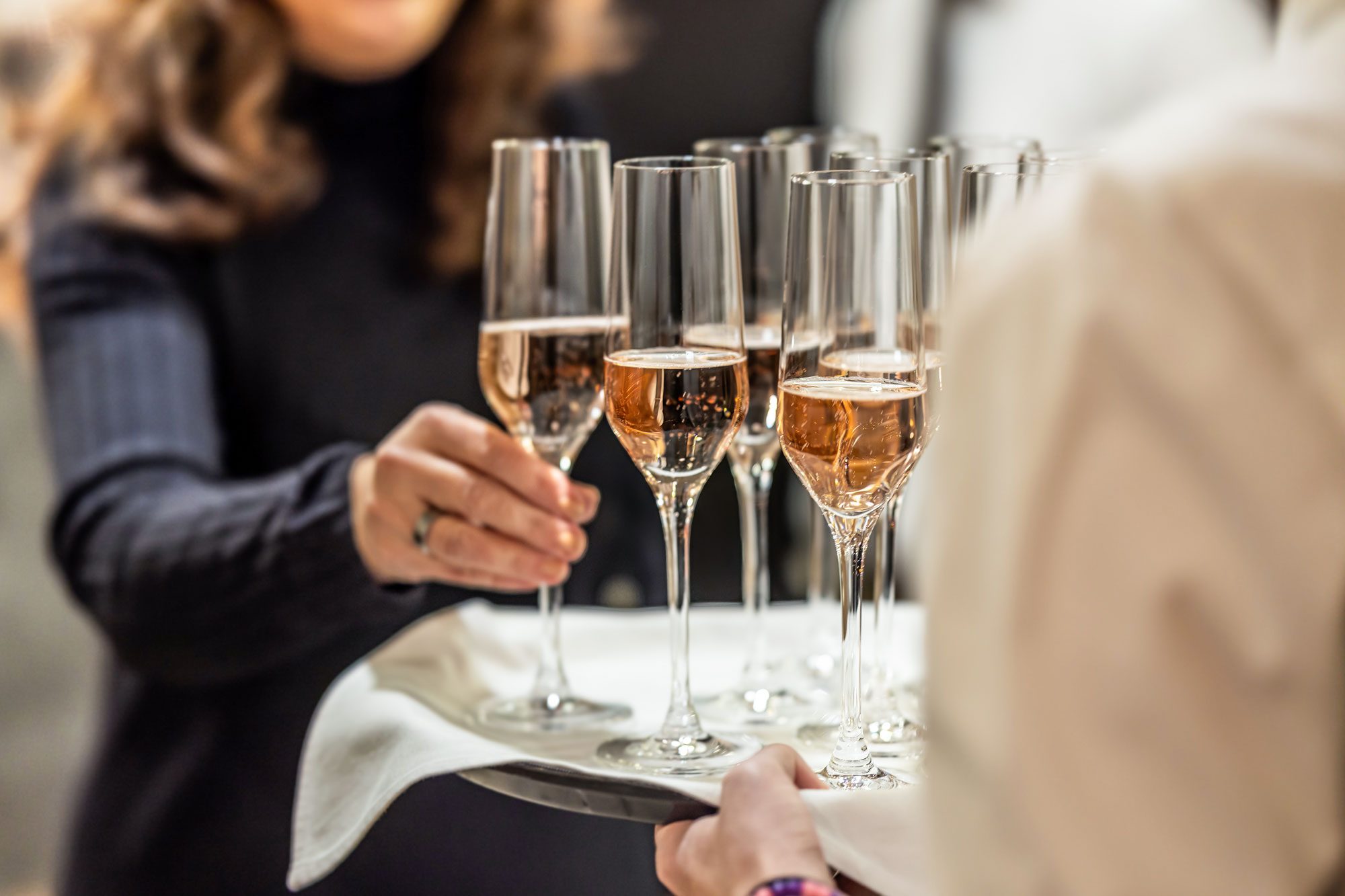
When hosting, offer guests a beverage right away
You’ll probably never enter a U.K. home without the host immediately asking if you’d like a cup of tea or water. Offering a drink is also polite in the United States, of course, but as with many etiquette rules, people sometimes forget or wait until they get one themselves. So, if you’re hosting, don’t make it your thirsty guests’ responsibility to ask for a drink—offer one as soon as they’re inside.
“Traditionally, it’s the gentlemen pouring the ladies a glass of water,” according to Windsor, “and it’s a way of signaling that the meal is about to begin.”
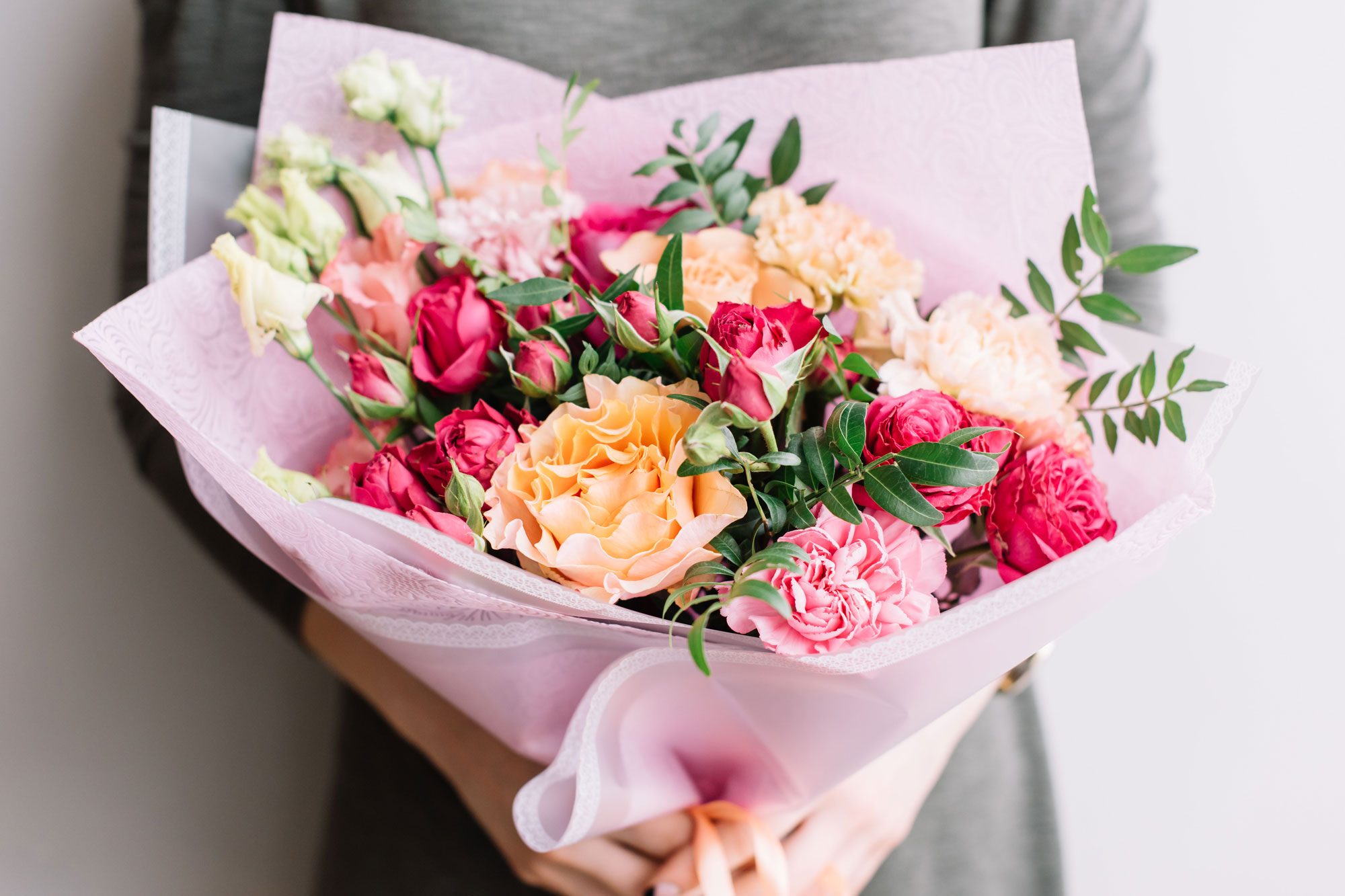
Don’t bring flowers to a dinner party
Just as in the States, it’s good English etiquette to bring a little gift when invited to somebody’s home. But what to get? Chocolates are always a good idea, Windsor says, as is a bottle of wine or champagne, “as long as you don’t expect it to be opened, as your hosts have probably already selected and paired the drinks with the food.” Personalized gifts will also be appreciated, such as a book by the host’s favorite author, jam for people with a sweet tooth, or flower seeds for someone who likes gardening.
The one gift to avoid at a dinner party, however, is a bouquet of fresh flowers. “They are a headache for the host if they’re busy preparing things and are then left to look after them,” Windsor says. “If you want to gift flowers, send them before or after dinner, or bring a potted plant they can just place somewhere.”

Avoid saying “like” all the time
Obviously, we’re not talking about using “like” when making comparisons, but the filler word often used by young people. “If you say ‘like’ every two or three words, you lose value and credibility, so try to avoid it,” Windsor recommends. That being said, she admits a lot of young Brits have started adding “like” to their daily vocabulary (often much to the annoyance of their parents). But traditionally, it still goes against proper U.K. manners.

Respect people’s personal space
Meeting a Brit for the first time? Even if it’s a friend of a friend or family member, you definitely shouldn’t greet them with a hug. “We’re a bit more stiff-upper-lipped than Americans, and we like to keep our distance,” says Windsor, explaining that when Brits shake hands, “we leave about a meter (approximately 40 inches) distance, the length of our own elbow and the other person’s elbow.”
While that might seem standoffish or cold at first glance, it’s not what it seems, according to Windsor. “It takes a little time to get to know us,” she says, “but once you do, we could be friends for life.”

Never jump the line
Brits have invented the art of queuing and don’t take it lightly when others try to mess up their orderly system. When waiting for a bus, for instance, they’ll form a line long before the bus has actually arrived. Obviously, there are exceptions to the rule, as Windsor points out: “If there’s a bus shelter and it’s raining, you don’t want to stick yourself out in the open, so you’ll huddle together to not get wet. But when it comes to getting on board, you’ll hopefully get back in line and wait until it’s your turn.”
It should go without saying that you should also patiently queue when waiting to order your coffee, pay at the grocery store or enter a theater, museum or restaurant. If not, it’s an etiquette mistake, plain and simple.
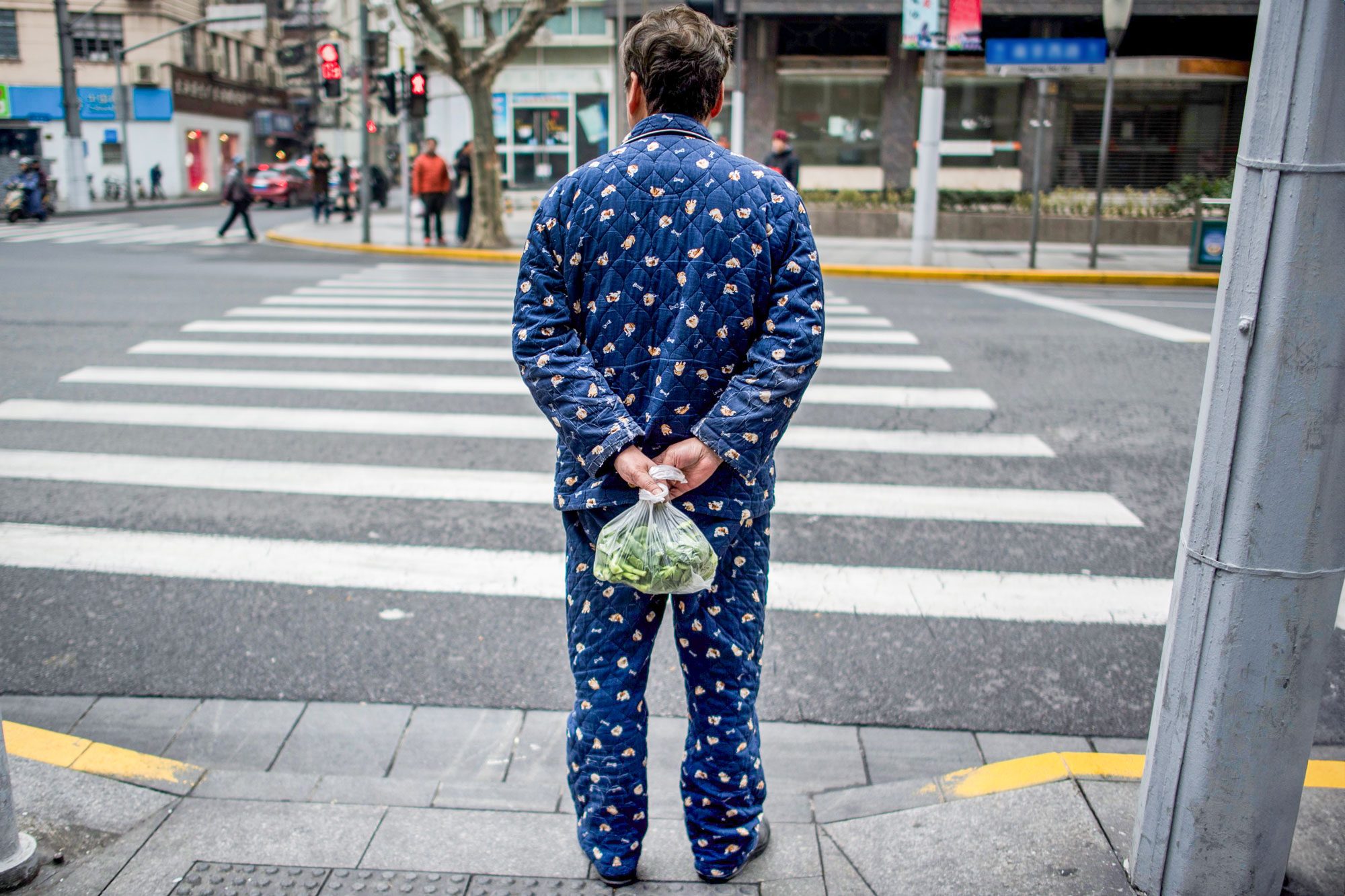
Don’t wear PJs in public
It’s 10 p.m., and you realize that you forgot to get milk for your morning cereal. While it might be tempting to just dash out to the grocery around the corner in your PJs and slippers, this is never a good idea in the U.K.—unless you want the whole neighborhood to know that you’re American.
“Don’t ever wear pajamas in public. You can never be sure who you might meet outside,” stresses Windsor. “It could be the CEO of a company you’ve wanted to reach out to for years, and you can’t just walk up to that person and introduce yourself looking like you just got out of bed.”
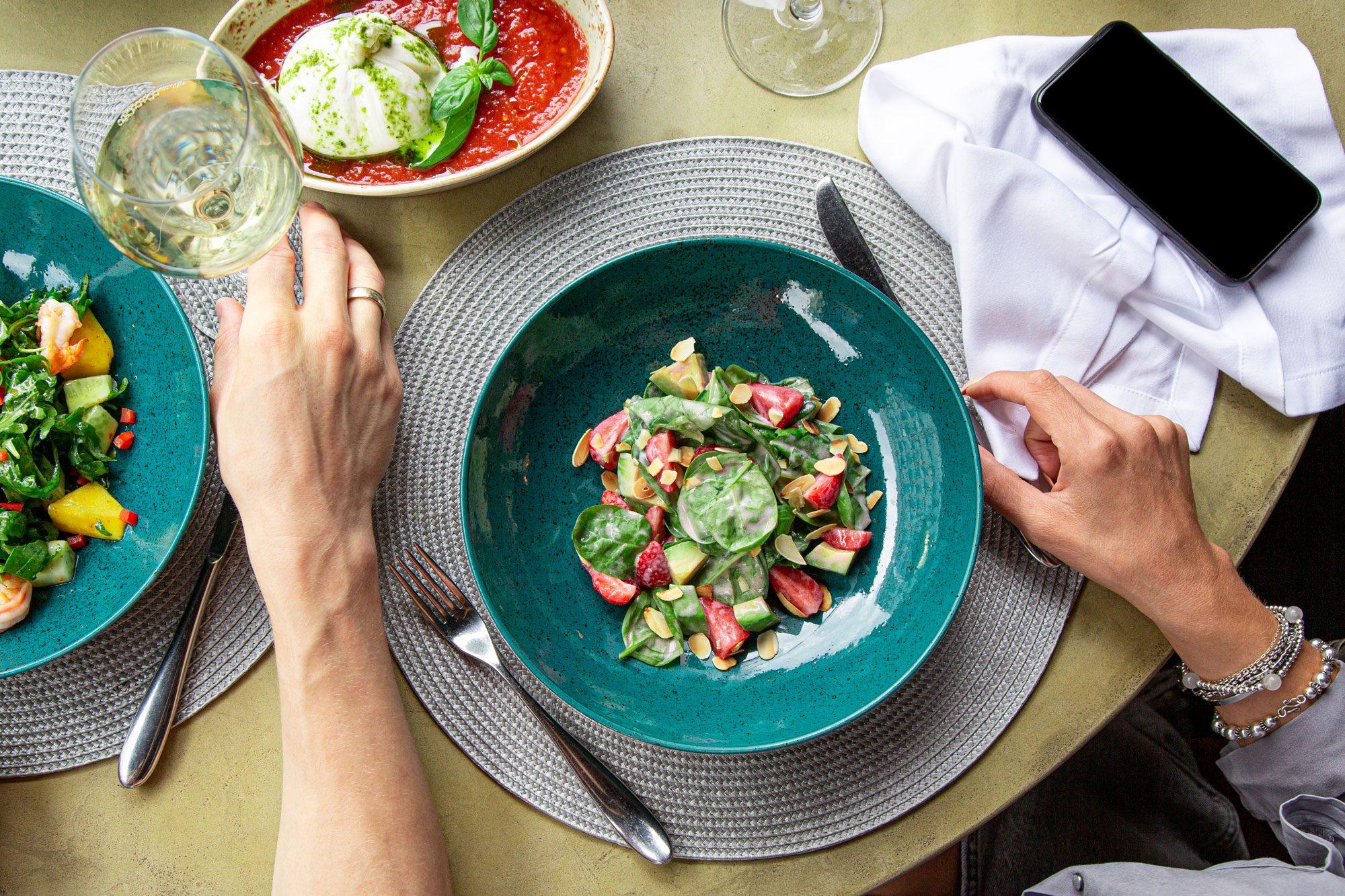
Put your phone away when you’re with others
A quick email, a quick call, a quick message. Many Americans are glued to their phones 24/7, but according to the British manners and etiquette rule book, this is a no-go when in the company of others. “It’s the height of bad manners,” says Windsor. “When you are with other people, they are the most important things around you—[paying attention to] anything else is disrespectful. Turn off your phone, and put it away.” If you are expecting an important call, mention that you’ll have to get up at some point, and then put your phone on vibrate so it doesn’t disturb the whole table. When the call comes in, get up and keep it short. And never, ever talk on your phone at the table.
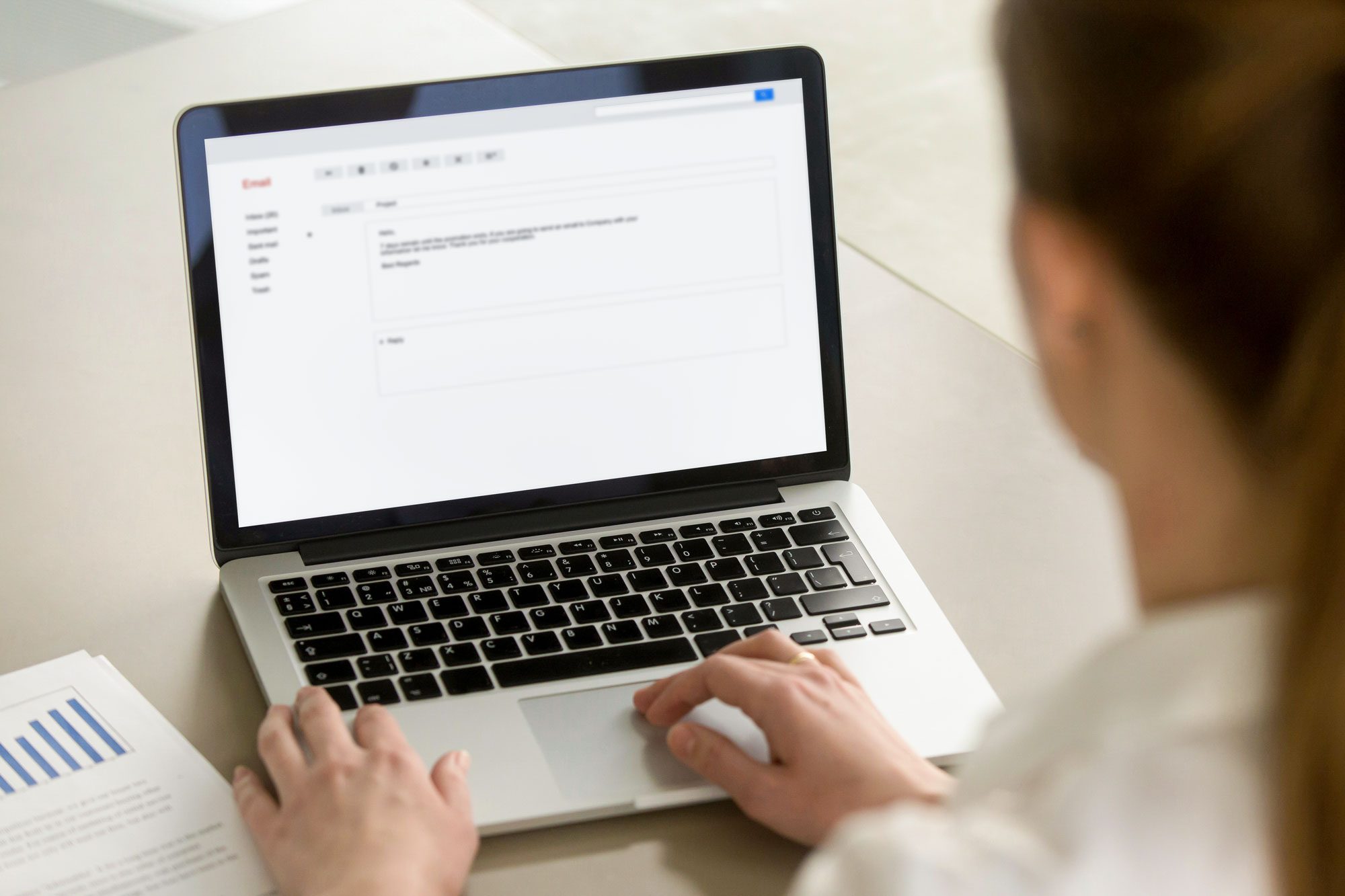
When in doubt, keep things formal
In the United States, work emails tend to skip the small talk and get straight to the point. But across the pond, they are usually longer and less direct—Brits are more focused on building up relationships. So, even if you might personally think long-winded emails are a waste of time, keep British etiquette in mind when emailing in a business setting to make a good impression. What’s more, proper British email etiquette dictates that you keep the first interaction formal. “‘Hey’ is for horses, and ‘hi’ is for high school,” says Schweitzer. “We’re adults in business; say something like ‘good afternoon.'”
Windsor also recommends using a person’s title and last name instead of going straight to first names if you’ve never met them. “When in doubt, always be formal because you can never go wrong,” she advises. “You might go wrong if you’re too informal and someone feels offended.”
It’s equally important to end your email politely. Using the jovial “cheers” as a sign-off is considered bad manners in Britain, says Windsor: “Leave ‘cheers’ to the pub when you have a beer. Write ‘goodbye,’ ‘thanks,’ ‘kind regards’ or ‘yours truly’ instead.”
Additional reporting by Marissa Laliberte.
About the experts
|
Why trust us
Reader’s Digest has published hundreds of etiquette stories that help readers navigate communication in a changing world. We regularly cover topics such as the best messages to send for any occasion, polite habits that aren’t as polite as they seem, email and texting etiquette, business etiquette, tipping etiquette, travel etiquette and more. We’re committed to producing high-quality content by writers with expertise and experience in their field in consultation with relevant, qualified experts. We rely on reputable primary sources, including government and professional organizations and academic institutions as well as our writers’ personal experience where appropriate. For this piece on British etiquette, Astrid Hofer tapped her experience as a London-based journalist with more than 20 years of experience covering topics including the British royal family. We verify all facts and data, back them with credible sourcing and revisit them over time to ensure they remain accurate and up to date. Read more about our team, our contributors and our editorial policies.
Sources:
- Laura Windsor, founder of the Laura Windsor Etiquette Academy; phone interview, July 2024
- Sharon Schweitzer, founder of Access to Culture; phone interview, July 2024



















